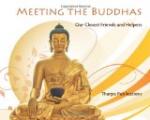Hast thou named all the birds without a gun?
Loved the wood-rose, and left it on its stalk?
At rich men’s tables eaten bread and pulse?
Unarmed, faced danger with a heart of trust?
And loved so well a high behavior,
In man or maid, that thou from speech refrained,
Nobility more nobly to repay?
O, be my friend, and teach me to be thine!
Ralph
Waldo Emerson.
THE STEEL TRAP.
In a little village in the northwestern part of America there once lived a boy named Amos Hunt. In that part of the country the trade in furs is extensively carried on, and Amos frequently caught some of the smaller wild animals in his steel traps.
One morning, early in the winter, Amos went into the woods to look at two of his traps. As he came near the first one, he saw that a fine mountain mink was caught in it. The poor creature was struggling to escape, but the teeth of the trap held its leg so firmly that the more it tried to get away, the more cruelly its flesh was torn.
Amos ran toward the trap, when suddenly his foot slipped, and he was thrown violently to the ground. He felt a sharp pain in his ankle, which was held fast so that he could not move. He was caught in the other trap, which, in his excitement, he had forgotten.
He was not frightened at first, for he thought he could easily set himself free, but the chain would not yield an inch. Soon his ankle began to swell, causing him the most intense pain when he tried to move. The teeth of the trap pressed closer and closer into the aching flesh, and he knew that he could only wait for help to come to him.
Not far from where he lay was the mink, suffering similar agony, and after struggling in vain to set himself free Amos watched the frightened, trembling little creature. It panted with terror, uttering now and then low moans of pain.
For the first time, Amos realized how cruel he had been, and as he thought of the long hours which would pass before any one came to look for him, he wished that he might at least set his fellow-sufferer free.
“Poor little creature!” he said. “This may be a punishment for my cruelty. I know now how much pain my traps have given.”
No one came and the long day went by. Night darkened, and the woods were cold and dreary. Amos was chilled through, and thought with longing of the warm fire at home. The little mink was still now. Amos hoped its sufferings were over. He almost wished that his own might end in the same way.
Suddenly, very early in the morning, there was a noise in the bushes, and a man came towards the traps. He saw at once what was the matter and ran to set the boy free.
“Now,” said he, “you must get on my back and I will try to carry you home.”
“Wait a minute,” said Amos. “I have a fellow-prisoner there in that other trap. If he is dead, I wish you would bury him. No one shall ever have his fur to sell, and I will never catch another animal in that fashion.”




